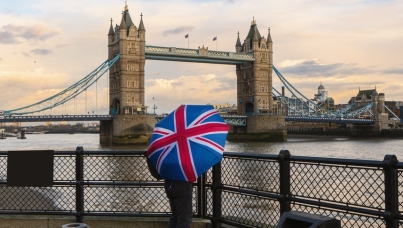Think global, act local – as COP28 progresses, preparations are underway for the next assessment of UK climate risks
COP28 is in full swing and even before the discussions and negotiations began, Ipsos polling data revealed that only 1% of the British public think that the global symposium will result in positive action.
Closer to home, the UK Climate Change Committee is gearing up to provide the evidence that will inform the next UK Climate Change Risk Assessment (CCRA) due to be produced in 2027 and has just published several insightful research studies to help inform its development. Ipsos UK was integrally involved in two of these studies. One of these studies, led by Ipsos UK and supported by the University of Leeds, explored what non-government users want from the CCRA. For the second study led by JBA Consulting, Ipsos UK provided a significant contribution to the investigation of which of the national level risks in the CCRA should be explored at a more localised level. A brief summary of both studies is provided below, along with key recommendations for the next CCRA.
This study, led by Ipsos UK and supported by the University of Leeds, recognised that the primary purpose of the CCRA is to inform government of the key climate risks that the UK faces and the actions needed to address them. However, many stakeholders outside of central government (local government, national agencies, NGOs, businesses and local communities) use the CCRA for their own decision-making purposes. The study explored how the next CCRA could be improved to meet their needs as well as fulfilling its primary purpose of informing government. The study involved online workshops with non-government stakeholders to understand their needs from CCRA4, a survey of stakeholders across multiple sectors to capture their views on CCRA3, and depth interviews regarding different climate information portals and tools.
Key findings are summarised below:
- Diverse user engagement: people from different sectors and organisations are interested in CCRA and there is a clear appetite to engage with CCRA4.
- Common needs: non-government stakeholders have similar needs to the government, especially when it comes to economic and spatial information. This is encouraging for future collaborative working between sectors and with government.
- The previous CCRA was useful, but not perfect: CCRA3 is a valuable resource, but some people find it hard to access because it is too technical or overly detailed. It’s essential that future CCRAs are more accessible to everyone.
- Streamlining and signposting: there are numerous tools available to help decision-makers understand climate risks and to support adaptation decision-making, but deciding which one to use can be confusing. There was a call from stakeholders to establish a CCRA data portal that brings everything together and makes it easier to find what they need.
- The study generated 10 key recommendations to help make the next CCRA more relevant and usable by non-government stakeholders; theses included presenting information via narrative storylines and case studies and exploring ways of collaborative working with these stakeholders in developing CCRA4.
Prioritising Climate Risks for Spatial Assessment Study
In this study, JBA Consulting and Ipsos UK looked at which risks would benefit from a more localised spatial perspective in CCRA4. This was informed by analysing the key (‘more action needed’) risks in CCRA3 and investigating if decision-makers could value from these being investigated at more local levels and if so, how this could be achieved. A high level desk-based review was conducted of all risks followed by a deep dive into four risks related to (a) infrastructure and flooding and coastal erosion; (b) health services and overheating; (c) risks to freshwater species and habitats from changing climatic conditions and extreme events; and (d) risks to coastal communities from sea level rise.
The study resulted in the following findings:
- More focus needed on infrastructure: risks to our infrastructure, like roads and power supplies, are of crucial importance as they underpin services to communities, business and society.
- Everything’s connected: a spatial systems perspective to risk assessment facilitates the identification of interdependencies between risks and assets/services and geography.
- Regional Differences: different parts of the country have different levels of readiness when it comes to assessing climate risks and differential capability for spatial risk assessment.
- Hazard and Vulnerability: when it comes to climate risks, we need to consider both the danger and how vulnerable we are. This helps us come up with targeted solutions that work for each specific risk.
- The project recommended that further work was needed to better understand the spatial implications of specific risks and highlighted the importance of interdependencies between risks requiring collaborative work across government department and between sectoral stakeholders to better understand and address these.
Ipsos UK’s Energy and Environment Team works to support the transition to net zero and enhance our climate resilience along with wider environmental sustainability issues such as circular economy, air quality and nature recovery.
Please get in touch to discuss our work in these areas.






